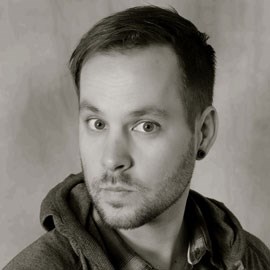It’s almost time to start gearing up for spring and, with that in mind, perhaps some of us will take some time to reflect on this past winter. Reflection, contemplation, reminiscing, the thing some of us find ourselves caught up in with a few minutes to spare. Perhaps we sit back and take some time to analyze our past choices and exactly where our decisions have brought us to today.
The “what might have been” and “what ifs” are always interesting. Believe it or not, there is actually study into the way we process these types of thoughts, to ponder an imaginary timeline that could have been. It’s called counterfactual thinking and its name is almost self-evident. This type of thinking uses the imagination to think up scenarios contrary to the facts of what has already happened.
There are two distinctly different types of counterfactual thinking. One is upward counterfactual thinking and the other is downward. When we ponder alternative decisions to life events, we can think in one of two ways. Either we say to ourselves, it could have been worse, or I could have done better.
Downward counterfactual thinking proposes a past situation could have been a lot worse. Suppose we are in a car accident, or were involved in a job interview that did not turn out as expected. In order to produce relief or satisfaction we may analyze the situation and think to ourselves, at least I wasn’t seriously injured or at least I got an interview in the first place.
Upward counterfactual thinking, on the other hand, argues we could have done better in past situations to produce more desirable outcomes. It’s a good way of deciding how we might make better decisions in the future, such as not speeding or being more prepared, but it’s also a good way to teeter on the brink of regret for what might have been, if we just did better or were better.
So, what might be the best way of thinking about past events in order to better plan for the future?
Perhaps, we can take a page of thought from philosopher Aristotle and find the golden mean between two extremes. It might be a benefit to split the difference, find the balance and develop a pattern of thinking that takes into account both what we could have done better and how things could have been a lot worse.
Maybe we didn’t do as well on a project or in an exam as we would have hoped. So what? We can avoid regret by thinking about how we still passed, but with a mark not up to our personal standards. At the same time, we may tell ourselves next time we will do better if we start studying a week or two earlier. By thinking about past events in this manner, the next time we are in a similar situation we may be more likely to make decisions that bring about more positive outcomes.
Having a spare minute to find the golden mean, the equilibrium between the extremes of upward counterfactual thinking and downward, may be a blessing in disguise. With spring and warm weather on the horizon, it’s not yet time when we’re out and about doing summer activities, but we’re instead offered this interim to plan our upcoming adventures, responsibilities and what future decisions we will make to bring about better results.
It’s easy to sit back and be satisfied with how good it is here, especially considering recent terrorist attacks on the world stage. And yet, we have the opportunity of uncovering insights by acknowledging we can always make better choices for ourselves. It’s our control how we decide to think. And, no matter what ends up happening, we can be satisfied in knowing although we have it good we can always do a whole lot better.



